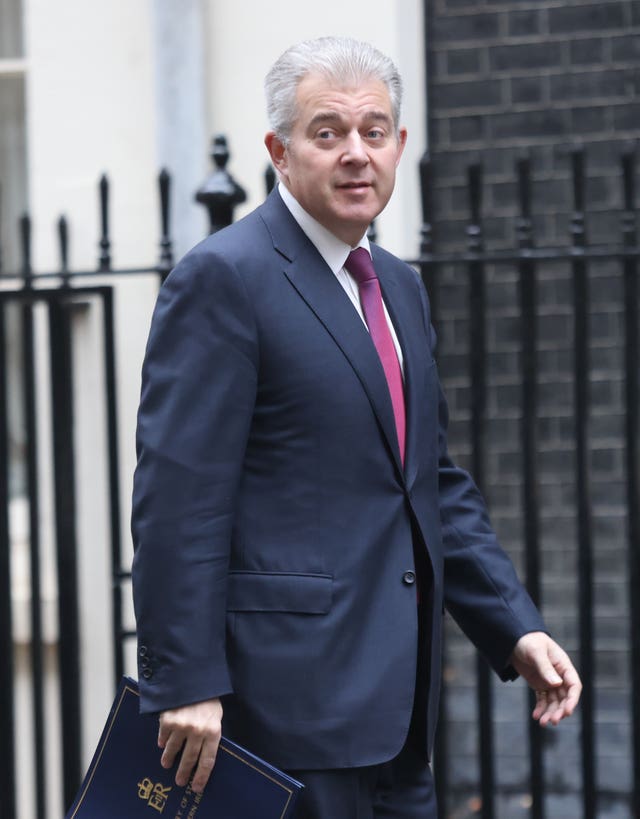
The British Government intends to introduce controversial laws to ban all prosecutions for Troubles murders “imminently”, Sinn Fein has claimed.
Secretary of State Brandon Lewis held a virtual meeting with Northern Ireland political parties and Irish Foreign Minister Simon Coveney on Tuesday over the Government’s plans to deal with legacy.
Sinn Fein MLA Declan Kearney said they were told the Northern Ireland Secretary of State would “give us a call” before the new legislation is brought forward in Westminster.
Earlier this year the Tory administration published a command paper outlining its intention to introduce a statute of limitations on crimes committed during the conflict up to April 1998 and would apply to military veterans as well as ex-paramilitaries.

The contentious proposals, which Prime Minister Boris Johnson said would allow Northern Ireland to “draw a line under the Troubles”, would also end all legacy inquests and civil actions.
In addition, the package of measures included a new truth recovery body and an oral history initiative.
But the move has been condemned by all the main political parties in Northern Ireland as well as the Irish Government, and a range of victims’ and survivors’ groups.
Speaking to the media, Mr Kearney said: “This afternoon we met with Brandon Lewis and we told him that the Amnesty proposals being brought forward by this Government do not command the consent of this society; that there is universal opposition towards their amnesty proposals by all victims and survivors.
“That message was reinforced by all of the parties who were on this call.
“The British Government have no support for this position and we told Brandon Lewis that he should now remove these amnesty proposals from the table.
“However, today’s meeting is the clearest signal yet that the British Government intends to proceed with the drafting and the enactment of legislation to provide amnesty for its state forces.
“That is an absolutely egregious position for the British Government to adopt.”

Mr Kearney added: “All along the British Government has said its command paper, these amnesty proposals, are about trying to build reconciliation.
“That is bogus, it is a deceit.
“The reality is that these proposals are the antithesis of reconciliation.
“It is clear that the British Government have now adopted a policy and a political decision that they are going to shut down any avenue available to victims and survivors in this society to secure truth and justice.
“We believe that the British Government intends to move imminently and in an entirely dismissive way towards all of those at the meeting and in a profoundly discourteous way towards all the victims and survivors in this society.
“Brandon Lewis simply said that they would give us a call before they brought the legislation forward in Westminster.”

Speaking after the roundtable meeting, DUP leader Sir Jeffrey Donaldson said the views of victims must be considered.
He added: “The Government’s proposal for a statute of limitations is not just opposed by every political party in Northern Ireland but the Commission for Victims and Survivors survey showed overwhelming opposition also from victims themselves.
“If we are to have a truly victim-focused process then the views of those victims must be put front and centre.”
Sir Jeffrey added: “Although the Irish Government claim to oppose the direct proposals from the UK Government, their inaction and evasion of action in relation to legacy cases in their jurisdiction or where murders were carried out from their territory means that victims are denied access to justice.
“I made clear to the Irish Foreign Minister, that victims will not tolerate attempts by the Irish Government to evade their responsibility for the actions of the Irish State or murders that occurred in their jurisdiction during the Troubles.
“We need to see specific proposals from them on how they will deal with legacy cases and offer the prospect of justice to victims.”


Comments: Our rules
We want our comments to be a lively and valuable part of our community - a place where readers can debate and engage with the most important local issues. The ability to comment on our stories is a privilege, not a right, however, and that privilege may be withdrawn if it is abused or misused.
Please report any comments that break our rules.
Read the rules here